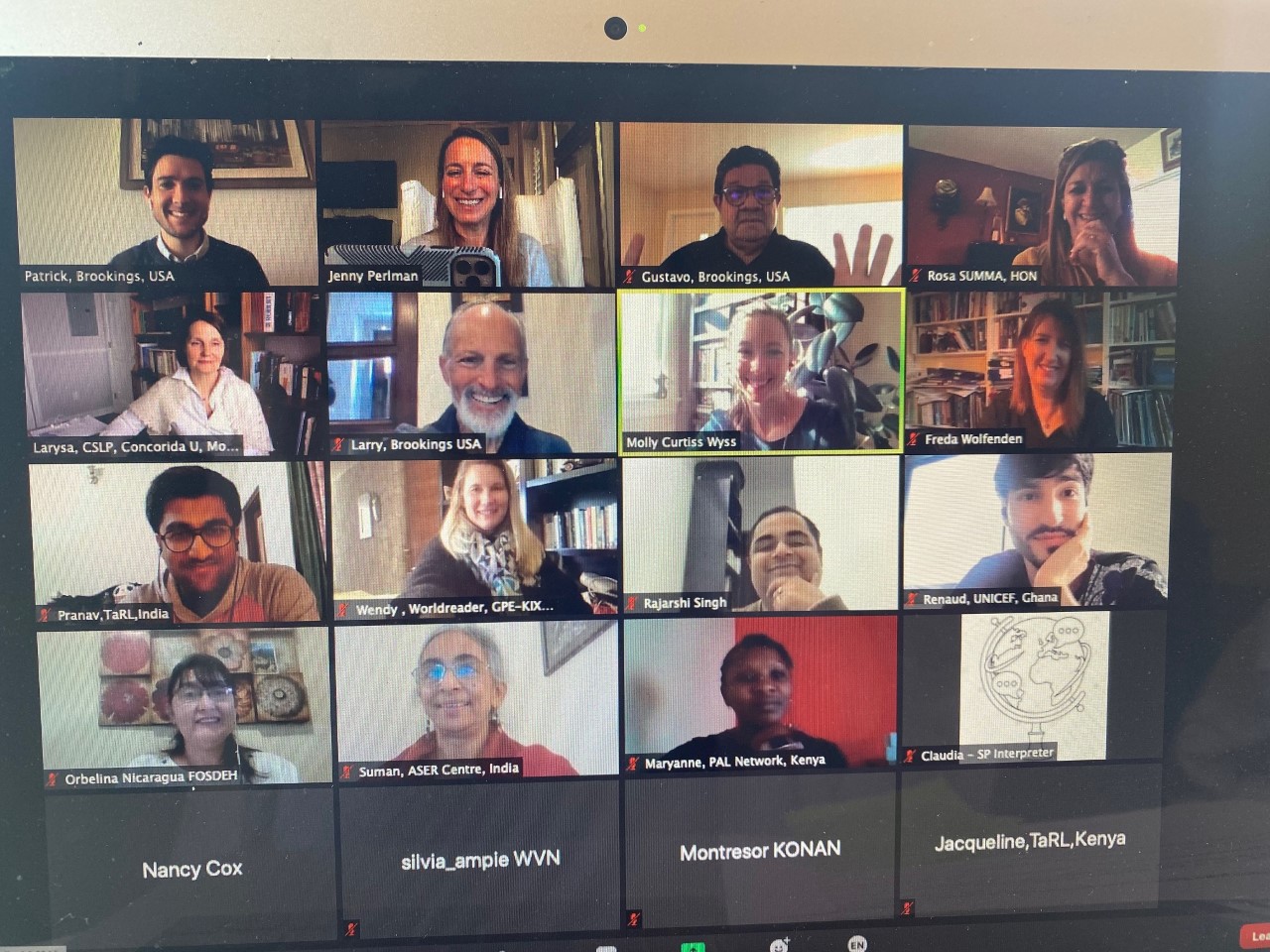
As part of KIX’s Research on Scaling the Impact of Innovations in Education (ROSIE), the Center for Universal Education (CUE) at the Brookings Institution held a three-day virtual workshop at the end of January with representatives from six KIX global projects participating in ROSIE action research (known as “ROSIE collaborators”). Colleagues from IDRC and the KIX Regional Learning Partners joined discussions on key scaling principles and effective communications and dissemination strategies.
ROSIE aims to enhance the scaling efforts of these projects while also generating new insights and recommendations on effective strategies for scaling education innovations in ways that optimize quality, inclusion, equity, and sustainability.
The objectives of this initial workshop were to establish a common understanding of scaling, identify a set of common learning questions among ROSIE collaborators, and brainstorm tools and approaches to gather information and generate scaling-related insights. As ROSIE is based on co-design principles and collective action, the workshop was an important opportunity to bring together key stakeholders to lay the groundwork for ROSIE over the next three years and begin to build a strong learning community on scaling.
One key achievement of the workshop was identifying an initial set of common learning questions that will guide ROSIE action research and analysis. These questions are related to key scaling drivers, such as alliances and champions, long-term financing, and the role of technology and teachers. Coming out of the workshop, CUE and ROSIE collaborators will continue to refine the set of questions, collaboratively explore what role these drivers play across different contexts, and generate actionable insights that strengthen the projects’ efforts as well as contribute to addressing critical knowledge gaps related to sustainable and equitable scaling in education.
